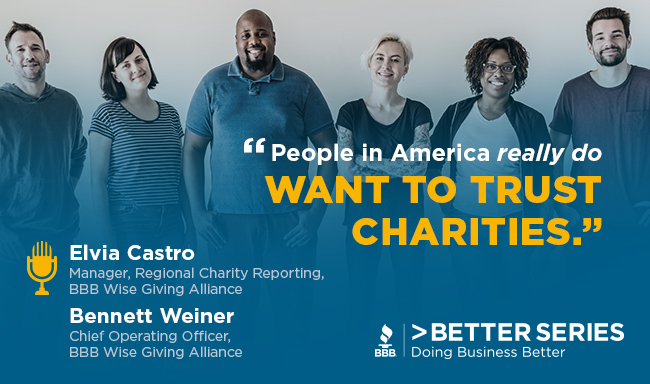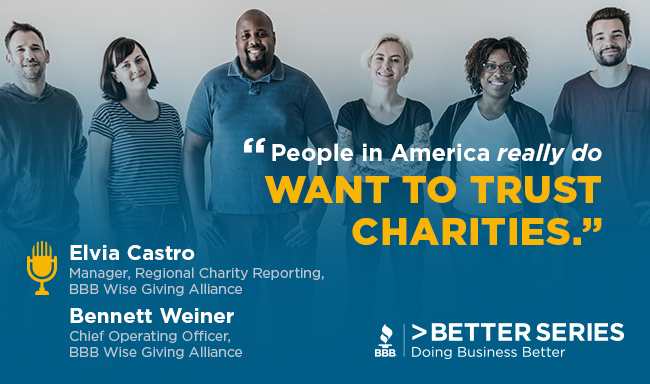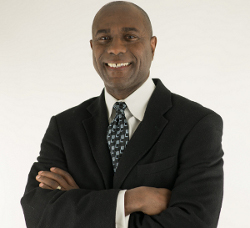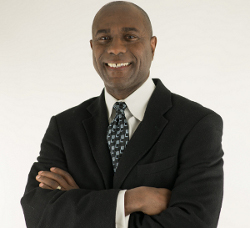Arlington, VA (Aug. 7, 2019) – BBB Wise Giving Alliance (BBB’s Give.org) and Global Impact, a leader in growing global philanthropy, will work together to promote transparency and high standards of conduct among U.S. charities working internationally.
Global Impact finds great value in BBB’s Give.org evaluation process and the information it provides to help donors make informed giving decisions. The organization will promote the evaluation to its alliance of international charity partners. “At Global Impact, we know it is important for donors to have tools that help make strategic giving decisions. BBB’s Give.org is a useful tool and we look forward to promoting evaluation within our network,” said Scott Jackson, president and CEO of Global Impact.
“This new opportunity will help raise awareness about how critical accountability and vetting are for donors, charities and companies alike,” said H. Art Taylor, BBB’s Give.org president and CEO. The 20 BBB Standards for Charity Accountability cover charity governance, results reporting, finances, fundraising, appeal accuracy and other issues. There is no charge to charities for the evaluation, and reports are available free of charge on Give.org.
About BBB Wise Giving Alliance:
BBB Wise Giving Alliance (BBB’s Give.org) is a standards-based charity evaluator that seeks to verify the trustworthiness of nationally-soliciting charities by completing rigorous evaluations based on 20 holistic standards that address charity governance, results reporting, finances, fundraising, appeal accuracy and other issues. National charity reports are produced by the BBB’s Give.org and local charity reports are produced by local Better Business Bureaus – all reports are available at Give.org.
About Global Impact:
Global Impact is a leader in growing global philanthropy. The organization builds partnerships and raises resources that help the world’s most vulnerable people by providing integrated, partner-specific advisory and backbone services; workplace fundraising and representation; campaign design, marketing and implementation for workplace and signature fundraising campaigns; and fiscal agency and technology services. Global Impact partners with hundreds of public and private sector workplace giving campaigns to generate funding for an alliance of more than 100 of the most respected international charities.
Learn more at charity.org.
MEDIA CONTACTS: For more information, contact Elvia Castro (703-247-9322 or ecastro@give.org) or Micaela Vivero (703-717-5265 or micaela.vivero@charity.org).












 With the arrival of spring my thoughts fast forward to warmer weather
and a break with cabin fever. I think of all the yard work to be done but the fun times too that attach to being outdoors. I have promised myself that this year I will attend more outdoor concerts. Many towns have music festivals that
draw popular acts and large crowds over many days. These events provide entertainment but also stimulate local economies. Some also provide a benefit to charity. Almost 30 years ago, perhaps the mother of all fundraising concerts took place
in my home town.
With the arrival of spring my thoughts fast forward to warmer weather
and a break with cabin fever. I think of all the yard work to be done but the fun times too that attach to being outdoors. I have promised myself that this year I will attend more outdoor concerts. Many towns have music festivals that
draw popular acts and large crowds over many days. These events provide entertainment but also stimulate local economies. Some also provide a benefit to charity. Almost 30 years ago, perhaps the mother of all fundraising concerts took place
in my home town.